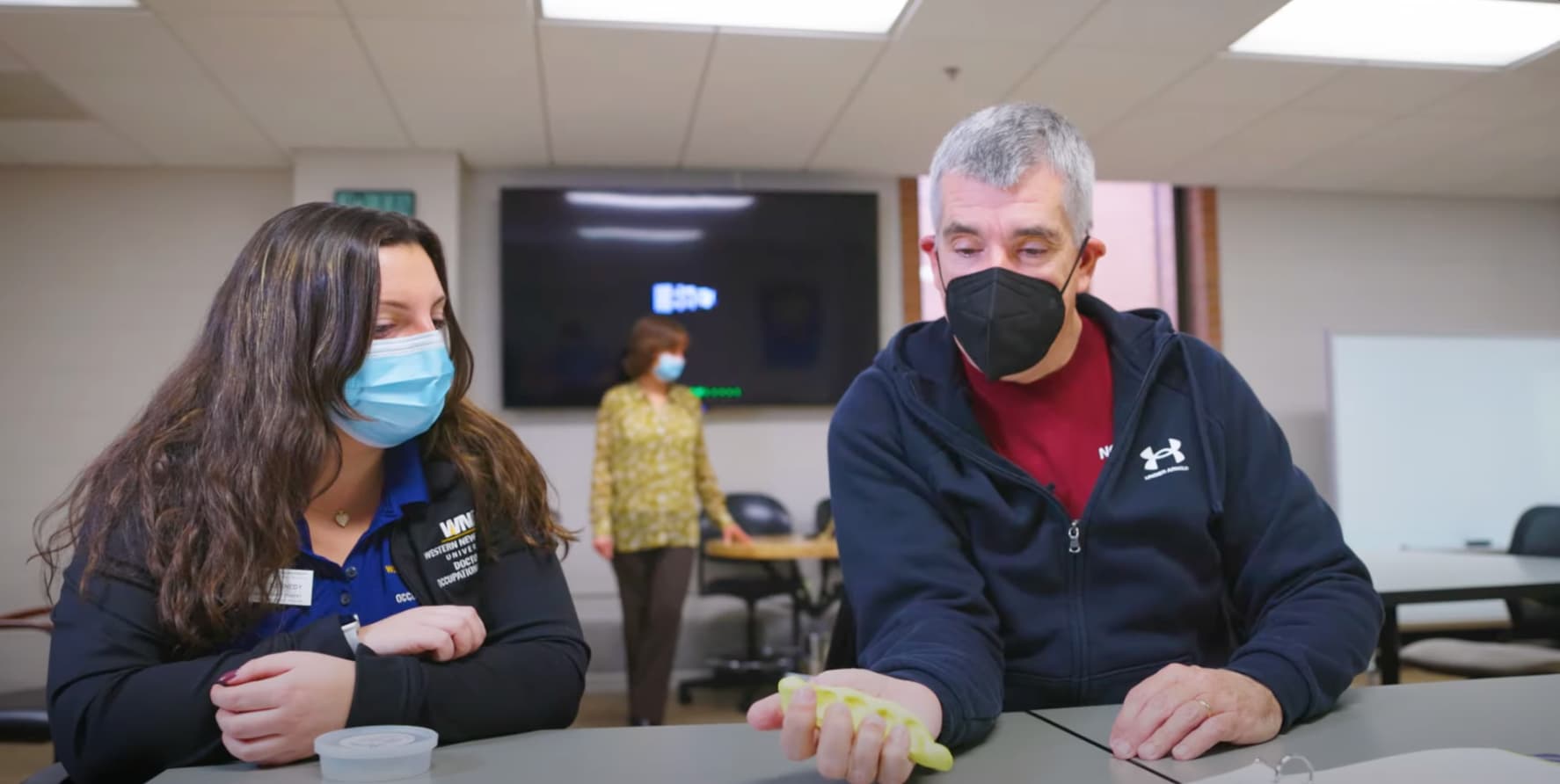Empowering Wellness Through Occupational Therapy and Student Outreach
The B.E.A.R. P.A.W. Center stands for Bringing Equity, Accessibility, and Rehabilitation to People Achieving Wellness. The Bear Paw Center (BPC) is one of the first student-run occupational therapy pro bono clinics in the country and serves as a model for other institutions. Students involved in the BPC have the unique opportunity to give back to the Greater Springfield community by providing hands-on occupational therapy services under the direct supervision of a licensed Occupational Therapist. This is an integral part of the WNE OTD curriculum because we believe that ample opportunity for hands-on, experiential learning allows our students to apply their classroom knowledge in real-world settings, preparing them for successful careers in the field.



